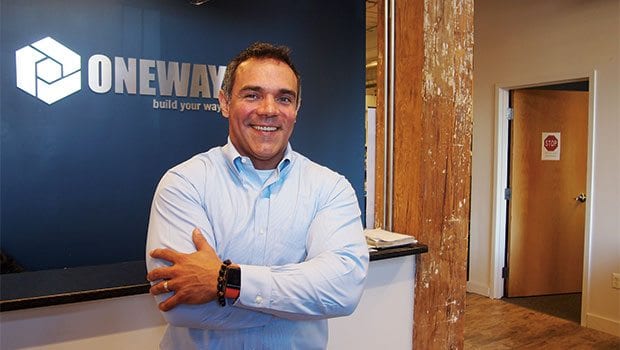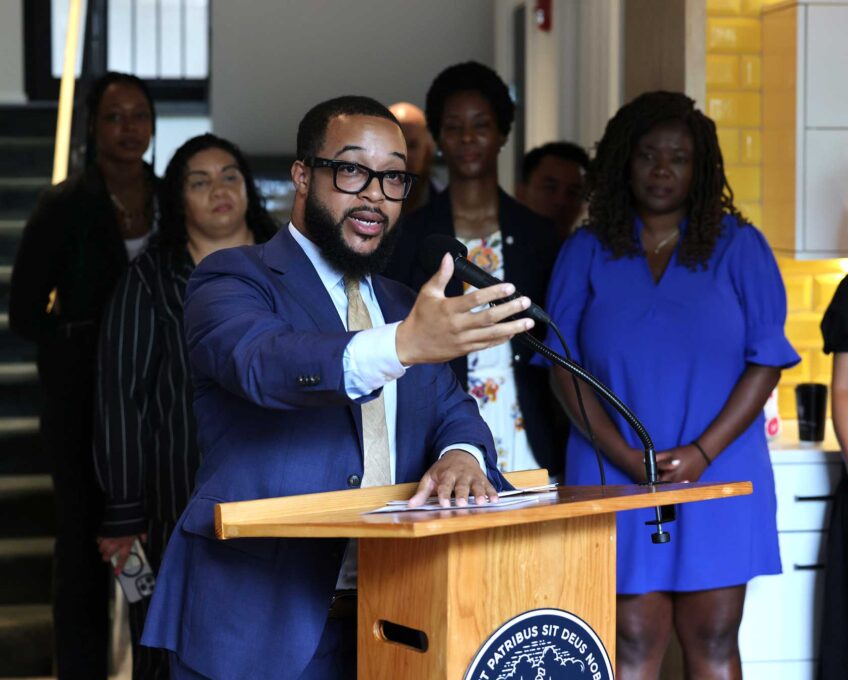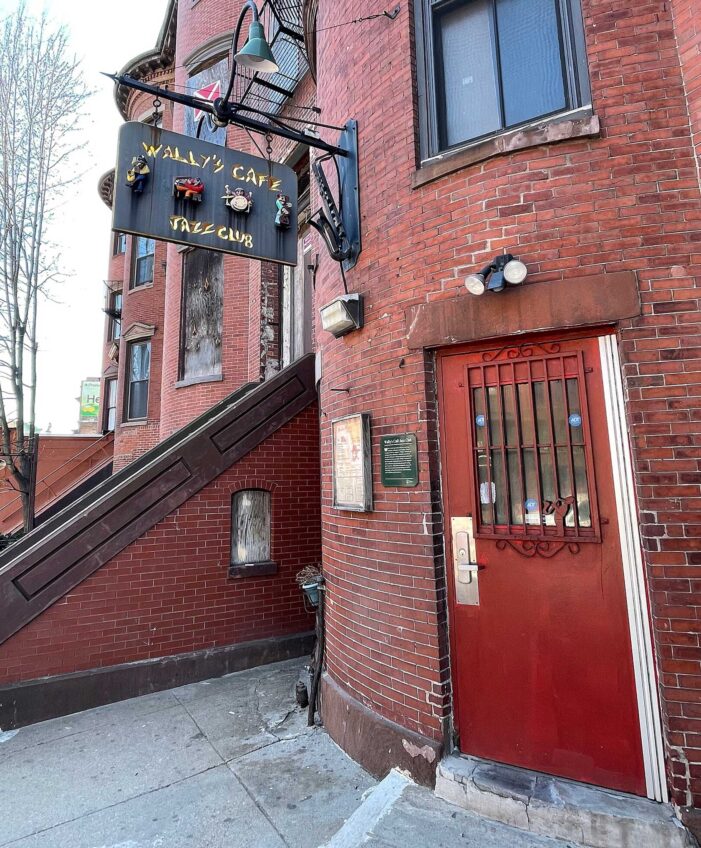Building trades in the blood
Entrepreneur draws on diverse experiences to build business

Abraham Gonzalez has come a long way since he was introduced to the construction industry at age 10, fetching tools and helping hang sheetrock to assist his uncles in Miami with their carpentry business back in the 1980s, and working with his father renovating bathrooms and kitchens in Boston in the 1990s.
Now, he has 40 employees, including administrative staff working out of the busy Kemble Street headquarters of his firm, One Way Development. He works on as many as 80 jobs a year, from residential projects as small as $500 apartment turnovers to major commercial projects as large as a $1 million lighthouse reconstruction.
Along the way, Gonzalez had another game-changing job. He worked as a patient care coordinator at Beth Israel Deaconess Medical Center, connecting patients entering the hospital with nurses, securing their medical charts and essentially functioning as a first responder.
It was a radical shift from construction, but Gonzalez says it was a blessing in disguise.
“I worked in an environment that was extremely well-structured,” he says. “It has paid off a lot here in the office. There are things I learned in the hospital that I use here, like client charts, bids, estimates. When you’re in a hospital, you have to coordinate with different specialists. In construction, it helped me compartmentalize work with subcontractors.”
An important choice
After graduating from Boston College in 2000 with a degree in psychology, Gonzalez’s life could have taken a different turn. But because he had finished his coursework nearly a year before graduation, he found himself with time on his hands and a yearning to see a bit of the world. He returned to his father’s business for six months and squirreled away enough money for a jaunt to Europe. While traveling, he came to the realization that he actually liked construction work.
When he returned, he went back to work with his father for four years. In 2004, he broke off on his own.
“We had two different schools of thought,” he says. “My dad to this day likes to be out in the field swinging a hammer. I feel there’s money to be made in the office, being able to present yourself to a bank, having financial statements. There was a whole other level of business that I wanted to attack – commercial, government work.”
He started off with apartment unit turnovers, updating kitchens and bathrooms and making repairs to ready apartments for new tenants. Little by little, he worked his way up in the field. Now, he builds houses from the foundation up, working with local community development corporations and the city’s Department of Neighborhood Development on affordable housing projects.
Gonzalez takes pride in One Way Development’s work and in fostering a diverse workforce. On a mixed-income development in Mattapan, Gonzalez had 98 percent minority participation in workforce and subtrades — not a bad record at a time when developers routinely fail to meet the 25 percent minority participation rate called for in the city’s Boston Resident Jobs policy.
“I think the community benefits when you’re hiring people from within the community,” he says. “I live in the city of Boston. I hire my own and I sub out to my own.”
SBA help
To reach his current level, Gonzalez had help from the Small Business Administration. As the construction industry came to a near standstill in 2009, he attended an SBA emerging business program training. The training helped him hone his business skills.
“I didn’t realize how important accounting was to stepping up my growth,” he said.
Through the SBA, he also qualified for an 8A designation that allows minority and so-called disadvantaged businesses to bid on major government projects. That designation opened the doors to jobs ranging from roof repairs at the National Park Service’s Longfellow House in Cambridge to the aforementioned lighthouse project — a tea- down of an existing lighthouse on Deer Island and the construction of a new, solar-powered steel beacon 150 yards away.
He has learned that working on government contracts can require patience.
“It takes a little longer,” Gonzalez says. “If you get a job in September, you might not get started until April or May of the next year.”
But in the current Boston-area construction boom, One Way Development has plenty to keep the team busy. Gonzalez got a piece of the $1 billion Suffolk Construction Wynn Casino project, erecting a prefabricated steel warehouse for the project.
Minority contractors
In addition to a boost from the SBA, Gonzalez has benefitted from his work with the Massachusetts Minority Contractors Association, where he serves on the board as clerk.
“These are contractors who know what the issues are in the city of Boston,” he says. “There are contractors on the board who have been advocating to create opportunities for people of color to be able to have access. Our struggles are all the same — capital, cash flow, opportunities. Their stories are my stories. It’s helped me to know there’s a group that has the same struggles that I do, that I’m not alone in this.”
Gonzalez seems to have hit his stride. He attributes his success to his agility — moving between different roles and jobs — a capability he sums up with a comparison to the CrossFit workouts he does every morning before work.
“It’s high intensity, functional movements, constantly varied,” he says. “Every day is a different day. You have to be able to be ready for anything.”







